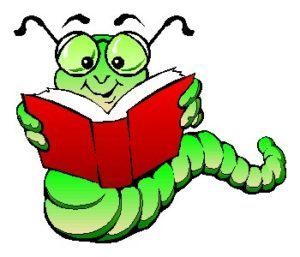Humanities-Literature: 10 Important Contemporary and Late-20th-Century Authors
Put these authors on your reading list
:max_bytes(150000):strip_icc():format(webp)/GettyImages-925364372-5bf2c28246e0fb00515dbac9.jpg)
Ranking the most important authors in contemporary and late-20th-century literature is impossible. These 10 authors all made their mark over the last 50 years and are each widely considered to be significant and worth exploring. From Updike’s post-World War II suburbia to Smith’s postcolonial tale of London immigrants, the sweep of these writers’ works chronicles the vast changes that have occurred over the turn of the 21st century.
Isabel Allende
:max_bytes(150000):strip_icc():format(webp)/89454983-56a1c0f75f9b58b7d0c24ad0.jpg)
Chilean-American author Isabel Allende wrote her debut novel, “House of Spirits,” to great acclaim in 1982. The novel began as a letter to her dying grandfather and is a work of magical realism charting the history of Chile. Allende began writing “House of Spirits” on Jan. 8, and subsequently has begun writing all of her books on that day. Most of her works usually contain elements of magical realism and vivid female characters. “City of Beasts” (2002) has been another large commercial success.
Margaret Atwood
:max_bytes(150000):strip_icc():format(webp)/GettyImages-1052167166-5bf2bb6246e0fb0026b0e106.jpg)
Canadian author Margaret Atwood has numerous critically acclaimed novels to her credit. Some of her best-selling titles are “Oryx and Crake” (2003), “The Handmaid’s Tale” (1986), and “The Blind Assassin” (2000). She is best known for her feminist and dystopian political themes, and her prolific output of work spans multiple genres, including poetry, short stories, and essays. She distinguishes her “speculative fiction” from science fiction because “science fiction has monsters and spaceships; speculative fiction could really happen.”
Jonathan Franzen
:max_bytes(150000):strip_icc():format(webp)/GettyImages-491037944-5bf2bc0bc9e77c00266a321e.jpg)
Winner of the National Book Award for his 2001 novel, “The Corrections,” and a frequent contributor of essays to The New Yorker, Jonathan Franzen’s works include a 2002 book of essays titled “How to Be Alone,” a 2006 memoir, “The Discomfort Zone,” and the acclaimed “Freedom” (2010). His work often touches on social criticism and family troubles.
Ian McEwan
:max_bytes(150000):strip_icc():format(webp)/GettyImages-859015348-5bf2bd1d46e0fb00510f046c.jpg)
British writer Ian McEwan started winning literary awards with his first book, a collection of short stories, “First Love, Last Rites” (1976) and never stopped. “Atonement” (2001), a family drama focused on repentance, won several awards and was made into a movie directed by Joe Wright (2007). “Saturday” (2005) won the James Tait Black Memorial Prize. His work often focuses on closely observed personal lives in a politically fraught world. He wields a paintbrush.
David Mitchell
English novelist David Mitchell is known for his frequent use of intricate and complex experimental structure in his work. In his first novel, “Ghostwritten” (1999), he uses nine narrators to tell the story, and 2004’s “Cloud Atlas” is a novel comprising six interconnected stories. Mitchell won the John Llewellyn Rhys Prize for “Ghostwritten,” was shortlisted for the Booker Prize for “number9dream” (2001), and was on the Booker longlist for “The Bone Clocks” (2014).
.

Toni Morrison
:max_bytes(150000):strip_icc():format(webp)/GettyImages-540630212-5bf2be71c9e77c00510e5d9c.jpg)
Toni Morrison’s “Beloved” (1987) was named best novel of the past 25 years in a 2006 New York Times Book Review survey. The searingly painful novel offers a very personal window into the horrors of the enslavement of people and its aftermath. The novel won the Pulitzer Prize in 1988, and Toni Morrison, a luminary of African American literature, won the Nobel Prize in Literature in 1993.
Haruki Murakami
:max_bytes(150000):strip_icc():format(webp)/GettyImages-1046649434-5bf2bf1746e0fb0026b18793.jpg)
Son of a Buddhist priest, Japanese author Haruki Murakami first struck a chord with “A Wild Sheep Chase” in 1982, a novel steeped in the genre of magical realism, which he would make his own over the coming decades. Murakami’s works are melancholic, sometimes fantastic, and often in the first person. He has said that “his early books…originated in an individual darkness, while his later works tap into the darkness found in society and history.” His most popular book among Westerners is “The Wind-Up Bird Chronicle,” and 2005’s English translation of “Kafka on the Shore” has also met with great success in the West. The English version of Murakami’s well-received novel, “1Q84,” was released in 2011.
Philip Roth
Philip Roth (1933–2018) seems to have won more book awards than any other late-20th-century American writer. He won the Sidewise Award for Alternate History for The Plot Against America (2005) and a PEN/Nabokov Award for Lifetime Achievement in 2006. His mostly Jewish-themed work usually explores a fraught and conflicted relationship with Jewish tradition. In Everyman (2006), Roth’s 27th novel, he stuck to one of his familiar later themes: what it’s like growing old Jewish in America.
Zadie Smith
:max_bytes(150000):strip_icc():format(webp)/GettyImages-1046603874-5bf2c06ec9e77c002648140e.jpg)
Literary critic James Wood coined the term “hysterical realism” in 2000 to describe Zadie Smith’s hugely successful debut novel, “White Teeth,” which Smith agreed was a “painfully accurate term for the sort of overblown, manic prose to be found in novels like my own ‘White Teeth.'” The British novelist and essayist’s third novel, “On Beauty,” was shortlisted for the Booker Prize and won the 2006 Orange Prize for Fiction. Her 2012 novel “NW” was shortlisted for the Ondaatje Prize and the Women’s Prize for Fiction. Her works often deal with race and the immigrant’s postcolonial experience.
John Updike
:max_bytes(150000):strip_icc():format(webp)/GettyImages-144711989-5bf2c13f46e0fb00263db3a1.jpg)
During his long career that spanned decades and reached into the 21st century, John Updike (1932–2009) was one of only three writers to win the Pulitzer Prize for Fiction more than once. Some of Updike’s most renowned novels included his Rabbit Angstrom novels, “Of the Farm” (1965), and “Olinger Stories: A Selection” (1964). His four Rabbit Angstrom novels were named in 2006 among the best novels of the past 25 years in a New York Times Book Review survey. He famously described his subject as “the American small town, Protestant middle class.”
.













